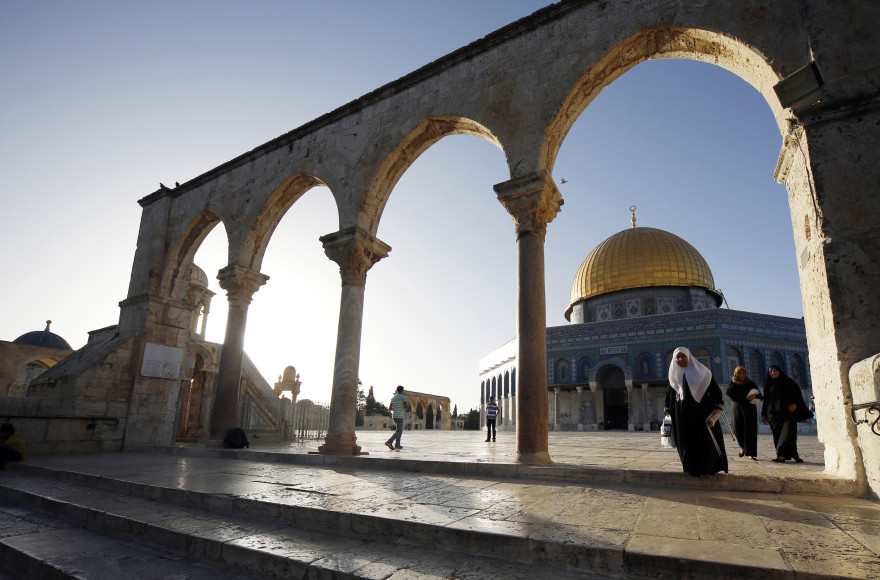JERUSALEM (JTA) — A United Nations committee has delayed a vote on a draft resolution that negates Jewish historical ties to the Temple Mount and Jerusalem.
The World Heritage Committee of the United Nations Educational, Scientific and Cultural Organization, or UNESCO, was scheduled to consider the joint Palestinian-Jordanian resolution on “the Old City of Jerusalem and its walls” during the organization’s 10-day annual meeting in Istanbul, Turkey, which was scheduled to end Wednesday.
In the wake of the failed coup attempt Friday in Turkey, however, the meeting was cut short Sunday, with the committee discussing a few pressing issues before disbanding.
The Palestinians, as well as Lebanon and Peru, had pushed for the resolution to be heard Sunday despite the shortened meeting, according to The Jerusalem Post. The European Union, which has four member states on the World Heritage Committee, backed Israel’s request for a delay.
The resolution likely will be considered by the committee at a meeting scheduled for Paris in October.
It refers to the Temple Mount 10 times as Al Haram Al Sharif, the Islamic term for the Temple Mount, without mentioning that it is the holiest site in Judaism, according to UN Watch. It also uses the term Buraq Plaza three times, placing Western Wall Plaza in quotes, appearing to deny a Jewish connection to the site. Israel is repeatedly referred to as the “Occupying Power” in Jerusalem.
A similar resolution was adopted by UNESCO’s executive board in April.
The committee is made up of 21 constituent nations: Angola, Azerbaijan, Burkina Faso, Croatia, Cuba, Finland, Indonesia, Jamaica, Kazakhstan, Kuwait, Lebanon, Peru, Philippines, Poland, Portugal, Republic of Korea, Tunisia, Turkey, Tanzania, Vietnam and Zimbabwe.
UNESCO Director-General Irina Bokova in a statement released Friday reiterated that Islam, Judaism and Christianity all have roots in Jerusalem.
“The heritage of Jerusalem is indivisible, and each of its communities have a right to the explicit recognition of their history and relationship with the city,” Bokova said. “To deny or conceal any of the Jewish, Christian or Muslim traditions undermines the integrity of the site, and runs counter to the reasons that justified its inscription in 1981 as a World Heritage site.
“Thirty-five years after the inscription of the site, the role and commitment of the World Heritage Committee is precisely to uphold the spirit of this historic decision. At the time, discussions and expert assessments made during the examination of the site concluded that the outstanding universal value of the City lies notably in this coherent synthesis, which must be protected in its integrity.”
JTA has documented Jewish history in real-time for over a century. Keep our journalism strong by joining us in supporting independent, award-winning reporting.






